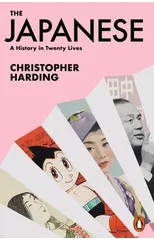The Light of Asia
A History of Western Fascination with the East
(Autor) Christopher HardingThis rich and enjoyable book by the acclaimed author of Japan Story explores the many ways in which Asia has influenced Europe and North America over centuries of tangled, dynamic encounters From the time of the ancient Greeks onwards the West's relationship with Asia consisted for the most part of outrageous tales of strange beasts and monsters, of silk and spices shipped over vast distances and an uneasy sense of unknowable empires fantastically far away. By the twentieth century much of Asia might have come under Western rule after centuries of warfare, but its intellectual, artistic and spiritual influence was fighting back. The Light of Asia is a wonderfully varied and entertaining history of the many ways in which Asia has shaped European and North American culture over centuries of tangled, dynamic encounters, and the central importance of this vexed, often confused relationship. From Marco Polo onwards Asia has been both a source of genuine fascination and equally genuine failures of comprehension. China, India and Japan were all acknowledged to be both great civilizations and in crude ways seen as superseded by the West. From Chicago to Calcutta, and from antiquity to the new millennium, this is a rich, involving story of misunderstandings and sincere connection, of inspiration and falsehood, of geniuses, adventurers and con-men. Christopher Harding's captivating gallery of people and places celebrates Asia's impact on the West in all its variety.
Christopher Harding
Christopher Harding is a British historian, author, and broadcaster known for his expertise on Japanese history and culture. He has written several books on the subject, including "Japan Story: In Search of a Nation, 1850 to the Present" which explores the modern history of Japan. Harding's writing is known for its insightful analysis, engaging storytelling, and deep understanding of Japanese society. His works have contributed significantly to the understanding of Japan's complex history and its place in the global context. "Japan Story" is widely considered his most famous work, showcasing his talent for making historical events accessible and relevant to contemporary audiences.



